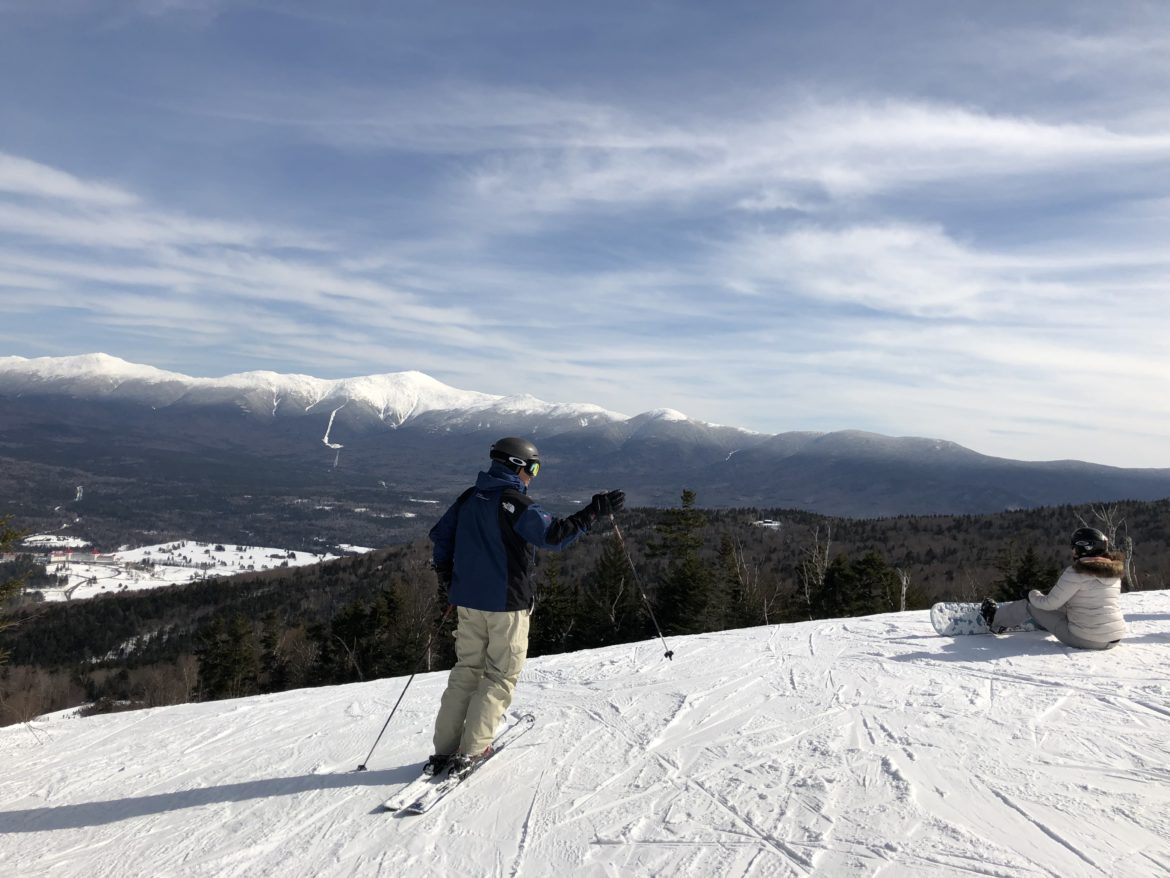By PAULA TRACY, InDepthNH.org
CONCORD – Lawmakers are expected to consider a bill next year that would tax ski lift tickets at the same rate as the rooms and meals tax in New Hampshire.
As expected, a ski industry official said they are preparing to oppose it.
State Rep. Craig Thompson, D-Harrisville, said he is floating the idea as a way to create a scholarship program for New Hampshire students to attend in-state colleges and universities. Revenue would help middle-income and lower-income students, he said.
“You know that 66 percent of our students leave the state to go to college” because New Hampshire has some of the highest costs for in-state tuition, Thompson said.
Thompson said 80 percent of those students do not come back to the state to work and raise a family. The state rooms and meals tax is 9 percent.
Thompson said he has three Democratic co-sponsors and would love to have some Republicans sign on. Working with Thompson on the bill as co-sponsors are Sue Mullen, D-Bedford, Jennie Gomarlo, D-Swanzey, and Alexander “Sparky” Von Plinsky, D-Keene.
Just how much the tax on ski tickets would collect is not known yet because Thompson said ski areas have not been willing to convey the number of tickets sold.
The industry estimates more than 2 million skier visits a year, but that number does not break down which were season pass uses versus individual tickets.
Jessyca Keeler is the executive director of Ski NH in Conway, the statewide organization that represents most of the ski areas in the state.
Keeler said it is really not possible to estimate the projected revenue from Thompson’s proposal “in part because we haven’t seen the proposal yet, and also because, based on what we do know about it, it is actually unclear what would be subject to the tax and what wouldn’t as far as ski area ticket or pass products go.”
Eighteen years ago, an entertainment tax that would have included ski tickets was floated in the legislature, but didn’t pass, she said.
Her members oppose this bill, she said.
“Ski NH and its members, who provide work opportunities for many New Hampshire families in rural areas of the state, are disappointed to see a tax proposal targeting perhaps the number one driver of economic activity for tourism in the winter months,” Keeler said.
“From a regional competitive perspective, it will disadvantage New Hampshire’s resorts as they compete with ski areas in surrounding states.
“If this 9 percent tax were to be enacted into law, New Hampshire would have the highest ski tax in the Northeast. Higher and new taxes do not add up to economic growth nor are they good for marketing New Hampshire’s many recreational opportunities,” she added.
Thompson said the hope was that the money generated by the tax would primarily come from out-of-state visitors and that he was looking at ways to carve out exceptions for in-state skiers and riders.
Keeler said if the tax does not apply to season passes and multi-day passes and to child-aged tickets, “then it will be difficult to administer because of the varying ticket packages that are offered and because of the different child age thresholds employed by the many ski areas.”
She noted there may also be a legal question to the tax exemptions.
“For these reasons, Ski NH is opposed to this proposal that singles out one aspect of recreational entertainment and does so without consideration for the negative impact businesses throughout the northern and western counties will incur. These northern and western regions of our state are particularly prone to economic vulnerabilities and cannot easily absorb a 9 percent sticker shock,” Keeler said.





